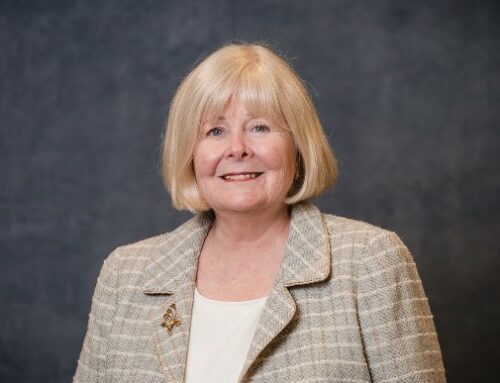The following personal essay was written by a Montgomery Hospice grief counselor. We include it on this website as “food for thought” for other professionals who may have had personal losses.

Managing Personal Grief as a Professional Grief Counselor
by Maude Harrison-Hudson
I have been a professional counselor for more than a decade and supporting others through their grief journey is second nature to me. I suggest to clients that grief is a process that is chaotic and devastating, and encourage them to be patient and gentle with themselves.
I am trained to help others with their grief and loss, but how do I manage my personal grief? As a professional counselor, I’ve come to realize I must manage my emotional well-being, and self-care is the instrument. I manage grief and loss in my personal life by meditating, reading spiritual and educational books, receiving acupuncture treatments, walking (member of ten-thousand-steps-per-day club), participating in my faith tradition and taking advantage of other spiritual support groups.
Prior to becoming a grief counselor, I had experienced multiple tragic losses of family members that began with my paternal grandmother, Maude, for whom I am named. My grandmother died from a massive heart attack when I was a teenager. Eleven years later my seven-year-old daughter was struck by an automobile and killed; my first husband drowned six months later. Over the years both of my parents died due to short illnesses.
My second husband was diagnosed with a terminal illness four years into our marriage and became a Montgomery Hospice patient prior to my employment with the agency. For the majority of the losses, I lacked effective coping skills but I managed to survive.
In 2013, my daughter was diagnosed with a terminal illness, and she eventually lost her life to pancreatic cancer in 2014. After my daughter’s death, I experienced the normal reactions to grief: numbness, sadness, disbelief, inability to concentrate, a need to retell the story over and over. During those early weeks and months, I was not myself and wanted to distance myself from those uncomfortable emotions. I wanted to flip the script and get back to my normal self, but I realized it was necessary for me to engage in good self-care so that I could effectively be present for my clients.
Because I work in a bereavement department, I benefited from numerous grief tools that were an enormous benefit, e.g. grief counselor support, a library with many books on grief and loss with relevant topics that addressed my specific needs (such as loss of adult child, healing a grieving parent’s heart), and the support of the bereavement department’s entire staff.
I encourage my clients to engage in good self-care during the grief process to remain emotionally, physically and spiritually healthy themselves. Fortunately, around the time of my daughter’s diagnosis I enrolled in and completed meditation training, which was very helpful. My experience is that one of the primary keys to managing my grief and continuing to support my clients is mindfulness and staying in the present moment.
keys to managing my grief and continuing to support my clients is mindfulness and staying in the present moment.
My emotional health is vital for me and is a support to my clients. I do experience clients whose loved one may have died from an illness similar to my family member that may trigger aspects of my own loss stories. I don’t comment in instances when I am triggered because intellectually I know that I must keep the focus on the client. At times clients will inquire about my losses and I gently communicate that we want to keep the attention on their story.
I strongly believe that for me to remain balanced I must give space and attention to my personal losses by engaging in the self-care activities listed above that contribute to healing of my body and heart.
My own personal loss while working as a counselor has been reflective and enlightening in that I continue to develop a keener awareness of my clients’ pain and their struggles to reach a new normal without the physical presence of their loved ones.
“Self-Care is not optional, it is a requirement.”

